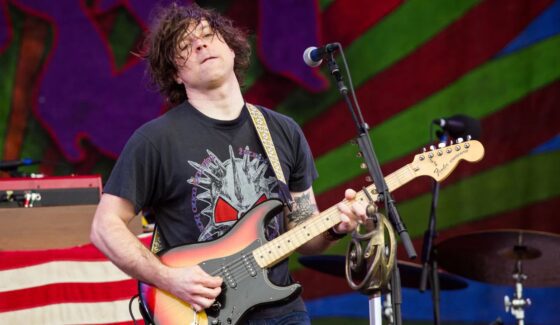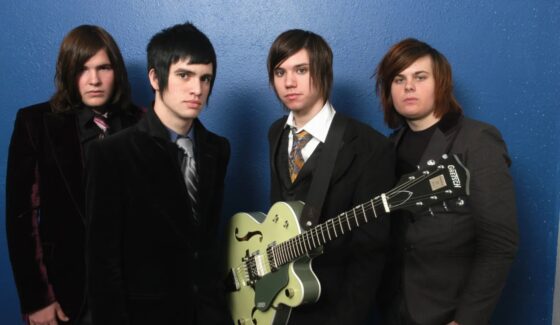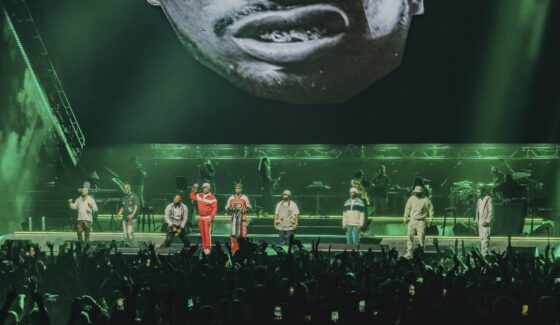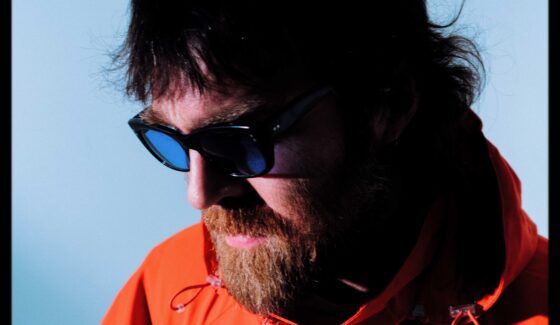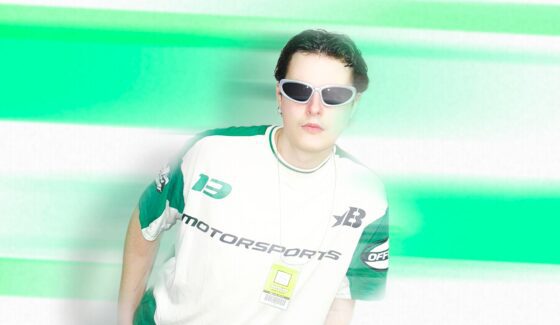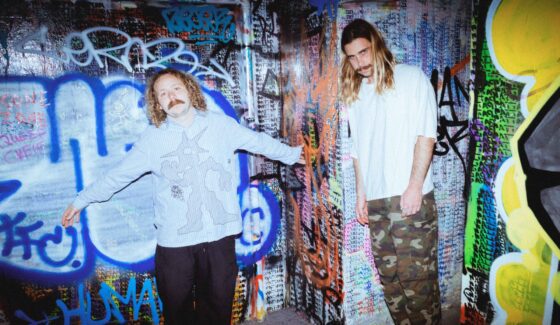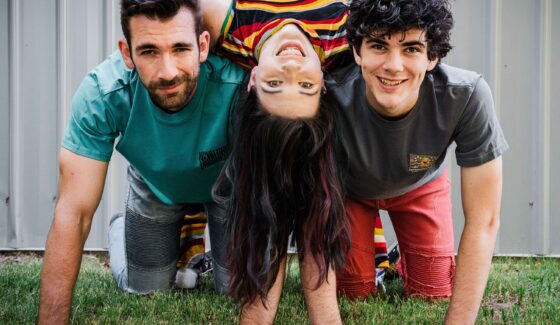Interview: Nick Mckenzie of Deep Sea Arcade Chats About the Re Release of Their Debut Album, ‘Outlands’
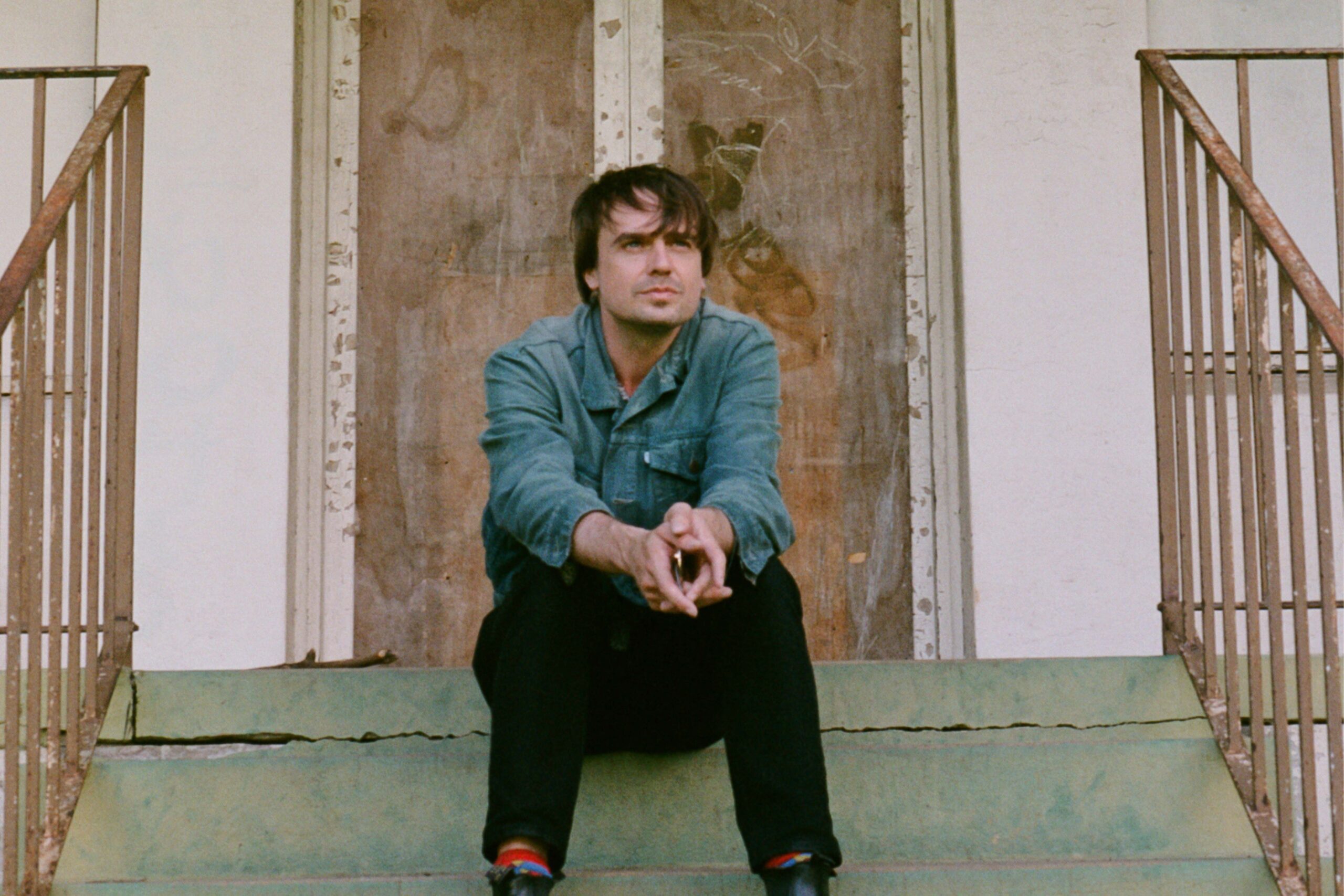
As the anticipation builds for the vinyl re-release of their debut album Outlands this Friday, we had the pleasure of catching up with Nick, the frontman of Deep Sea Arcade. In our conversation, Nick shared insights into the band’s evolution, the inspiration behind revisiting their formative work, and the profound personal experiences that continue to shape their musical journey.
It’s been an exciting journey for Deep Sea Arcade, from your early days to the anticipation of your third album. Can you share with us how the band’s evolution has shaped the music you’re creating now, and what this new chapter means to you personally?
Absolutely. Musically, we’ve always been inspired by the idea that you don’t have to be confined to a specific sound or style. Growing up, I was heavily influenced by producers like Geoff Barrow of Portishead and Josh Paul Davis (DJ Shadow) I love the creative freedom that sampling or being a DJ offers; as a Dj/ Producer in the 90’s you could sample a Bollywood movie’s soundtrack and layer it over a break from a soul or funk record, then add vocals from a ’60s sunshine pop album if you felt inclined. While I don’t sample music myself, I draw inspiration from the challenge of emulating elements from different pieces and placing them next to contrasting sounds, styles, or genres.
Each of our albums has been a collaborative effort from a production standpoint. For our debut, we worked with Dan Grech-Marguerat (Lana Del Rey, Liam Gallagher). On our second album, we teamed up with Eric J Dubowsky (Flume, St. Vincent). For this upcoming album, I’m collaborating with Jay Watson (Pond, Tame Impala). What draws me to Jay’s work is the sincerity and charm in his recordings. His decisions are always highly musical, and his ability to bring ideas to life—whether on drums, bass, guitar & vocals—has always inspired me. I also remember that Nick Weaver met Jay (years ago) and told me it was a special moment. Getting to know Jay, experiencing his recording methods has been uplifting. I’ve learned invaluable lessons from this process that I’ll carry into future projects.
You’re revisiting your debut album Outlands with a series of remixes. What inspired this decision, and how do you feel it bridges your past and future work?
In 2021, I lost my dear friend and collaborator, Nick Weaver. Listening to the isolated tracks from that album brought back memories of our time working together. As someone who loves electronic music and sampling, it struck me that there was an opportunity to rework these tracks, giving them a fresh spin while honouring the memory of our collaboration.
I reached out to several DJs and producers I admire, many of whom have influenced or directly collaborated with me on our upcoming record. Their involvement made this project feel even more meaningful, as it created a bridge between past and future work. It’s been a positive, forward-moving way to celebrate our earlier music while embracing new interpretations.
I love performing live as a five-piece band, but I’ve always envisioned incorporating a Deep Sea Arcade Sound System DJ set. This remix project felt like the perfect starting point for that idea, allowing us to celebrate what we’ve done before while opening up new possibilities.
The Raindrop Remix of ‘Granite City’ has been released as part of the remix series. How did you come across Raindrops work and what drew you to have him do the remix?
Lately, I’ve developed a real passion for collecting vinyl records— (maybe it’s my age) maybe it’s just Miles (Raindrop) runs multiple record stores, including an online shop called Mindfield Records, and he’s a regular presence at nearly every record fair in NSW. I knew Miles a bit from booking his band some time ago, but we often bumped into each other at record fairs and would chat about artists like Madlib, The Nazz, or The Isley Brothers.
Eventually, I visited his home studio and shared some demos from my upcoming record that I had just been sitting on. His encouragement and enthusiasm gave me an enormous confidence boost that I’m forever grateful for. Despite having a lot of analog equipment myself, many of my parts were recorded quickly on soft synths. Miles offered to run the MIDI through his MiniMoog, Juno, or Linn Drum, adding some analog love. When the remix project came about, he was the first person I reached out to, and he reworked ‘Granite City’ beautifully.
You’ve hinted at future remixes from artists like Vlossom and Barely Passable. What can we expect from these upcoming releases?
At this stage, I actually haven’t heard the remixes they’ve done, so I’m as excited as anyone to find out how they sound. For context, I’ve known Al (from Vlossom) for a while; we toured together during his time with Cloud Control and crossed paths again in the UK. A few years back, I tuned into the radio and was floored by this beautiful vocal melody and production—it turned out to be the Vlossom’s track Catch Your Breath . When I ran into Al later that year, he shared his unique method of writing melodies at a super slow tempo and then speeding the song up, which fascinated me. Since then, I’ve been eager to collaborate with him in some capacity. With Barely Passable, I discovered their track By My Side featuring Amber Rose and was absolutely blown away. I’m a huge fan of anything that blends 60s-style vocals with modern electronic production, so I reached out to both them and Amber Rose immediately.
You’re currently in the studio recording your third album with Jay Watson of Tame Impala and Pond. How has his involvement influenced the direction and sound of the new album?
I first met Jay a few years ago when helping organise a tour for his solo project, GUM. Recently, while searching online for an AKG D12 microphone—famously known as The Beatles’ kick drum mic—I stumbled upon a listing that turned out to be Jay’s. We struck up a conversation, and I ended up sharing my demos with him. These demos were somewhat unconventional, often built over drum tracks from YouTube instructional videos of classic song covers or drum grooves I’d programmed myself.. Jay immediately understood what I was aiming for and offered to re-record the drums, bass and in a number of cases guitar and synth as well as mix all the tracks in his studio in Western Australia.
Jay’s involvement has brought a distinctive groove and feel to the album, thanks to his unique playing style and his knack for balancing elements in a mix. His collection of vintage outboard effects—chorus, phaser, fuzz, flanger, and spring reverb—all used super tastefully, adding texture that nods to our mutual love of bands like Supertramp, Blur, The Bee Gees, Edwyn Collins, MGMT, LCD SoundSystem and more. His influence has elevated the sound of this record, bringing a familiarity and dynamic energy.
READ MORE: Impressed Recordings Partners with UK’s Republic of Music for Global Vinyl Distribution
With the third album set to release in the first half of 2025, what themes or concepts are you exploring this time around?
I’ve always been drawn to storytelling and creating vivid characters, and this album is definitely in that realm. Many of the stories and characters come from feelings I’ve experienced firsthand or from moments I’ve observed in others. Often, they’re sparked by realisations I’ve had about myself, people around me, people on the tv, or even people I’ve lost.
On our last album, Blacklight, I felt that I poured quite a bit of energy into the music itself and when it came to the lyrics, they sometimes felt unfinished or not fully developed. In contrast, on Outlands, my lyrics were inspired by observing the relationship between my parents—the only relationship I had really ever witnessed up close at that time.
Now, having experienced a wider range of personal relationships, the themes in this upcoming album are more nuanced. I’ve gone through my share of failed relationships, ones that were profoundly positive, moments of unrequited love, and situations that I now look back on with regret or just wishing they could happen all over again but with some small change. I’ve also found myself reflecting on the experiences of my older relatives and friends, like my grandparents, and wondering what the world looks like through their eyes. All of these perspectives and insights are finding their way into this new body of work.
You’ve just come back from headlining Outwest Fest in Ararat, Victoria. How do you feel about returning to the stage, and what can fans anticipate from your performance?
I’m still absolutely buzzing from playing Out West Fest in Ararat, Victoria. It was an incredible experience, and the journey to get there was just as special. My background in music journalism and photography led me to connect with two talented artists: Emily McGill (Milou Moon) and Bel Kil. When Bel decided to organise a festival in her hometown, she invited me to perform. The only challenge was that I didn’t have a band at the time.
Emily offered to introduce me to some musicians based in Melbourne and regional Victoria. Over the past two months, I connected with Cal, Tosh, Tyler, and Will online, and we began learning the Deep Sea Arcade set virtually. Despite the unconventional rehearsal process, we managed to come together for just one full practice before the festival. I was pretty stoked when the performance at Outwest Fest turned out to be one of the tightest sets I’ve played in my career.
Each of these musicians brought incredible respect for the original recordings while adding their own tasteful touches, making the performance feel both true to its roots and freshly energised. It’s been exciting to see how their contributions enriched the sound of the songs for me. Additionally, this experience has opened my eyes to a thriving group of musicians based in Victoria, and I’m excited by the potential of future collaborations. It’s moments like these that remind me of why I love music.
Reflecting on your journey from your debut album to now, what significant changes or growth have you observed in your music and the band as a whole?
I think that I’ve grown as a collaborator since the debut record. I’ve always been a perfectionist, but when I started out, I lacked the confidence and communication skills to work as effectively with collaborators beyond the core unit of Nick Weaver and myself, and ironically what I mean by that is you can achieve more by speaking less and agonising less about ‘the process’. While we often achieved the results we aimed for, the journey was sometimes more laboured, and I accept my part in that. Over time, I’ve learned that trust and positivity are the cornerstones of any creative partnerships. Making music inevitably involves giving constructive feedback, but how that feedback is delivered can shape the entire experience for everyone involved. I wouldn’t say that I make better music now than I did a decade ago, but the process has become much more enjoyable and fulfilling.
